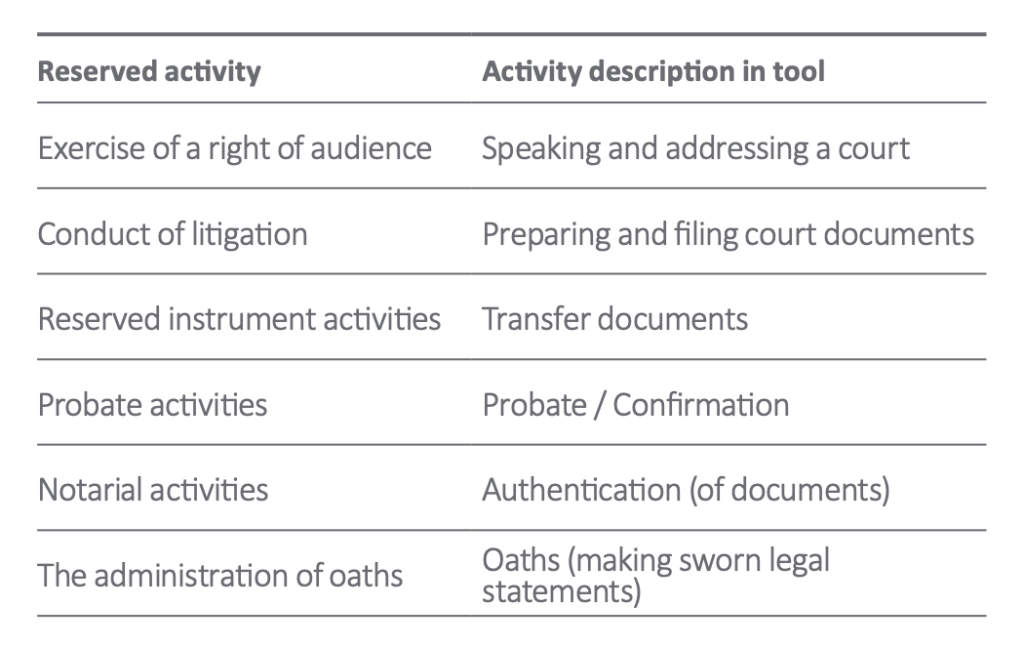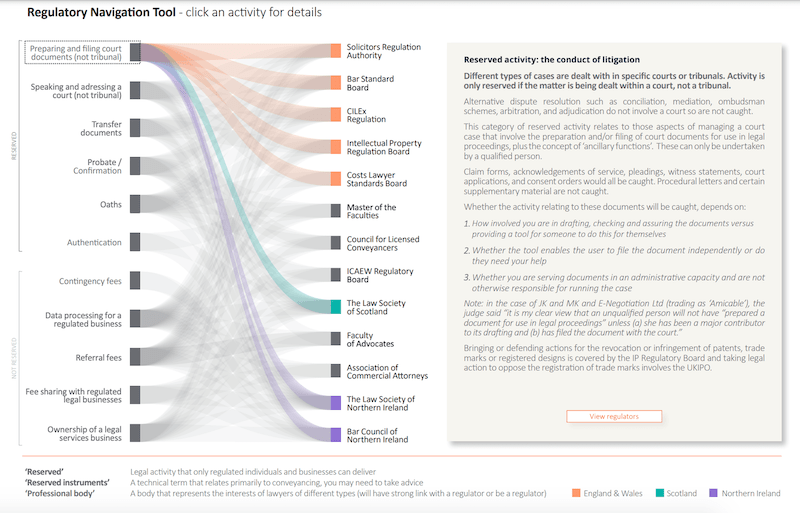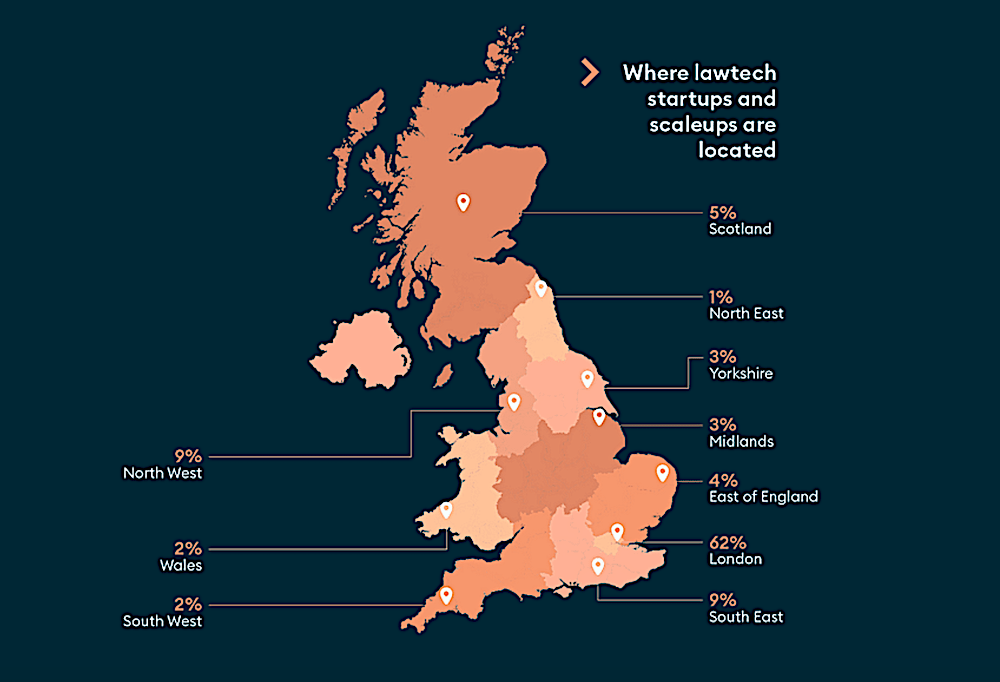
Dual projects developed by LawTechUK, one to help legal tech companies access data to help build out their products, and the other to deliver regulatory clarity, are making good progress and have seen the launch of additional tools to help the market.
LawTechUK, a Government-backed body run by Tech Nation, is working on several projects, but these two are central to its efforts to support legal tech growth. First, data sharing.
The group, in collaboration with the Open Data Institute, has now developed a ‘Legal Data Sharing Toolkit’ to help companies access the data they need. It has also been successful in linking legal data needs with large companies and major institutions to provide key information that will help legal tech businesses to build better products.
So far LawTechUK has helped with the following needs, (initially as part of their Sandbox Pilot) –
- Vodafone shared 200+ documents with Amplified Global to assist their product development
- Legal Utopia, a consumer- and SME-focused site, worked with a law firm (not public yet) to gain access to 20k+ documents to train their contract review tool
- HMCTS, Land Registry and Companies House shared 1000s of templates and forms for Legal Utopia’s open-access library
- SRA, BSB and CILEx contributed relevant data for the development of Legal Utopia’s service provider comparison map
- ClauseMatch built their own dataset based on industry expert workshops we ran, to train their AI
Jenifer Swallow, Director of LawTechUK, told Artificial Lawyer: ‘One of our goals through the Lawtech Sandbox Pilot was to open doors to data access that were previously closed.
‘We knew this was an untapped area of opportunity for [legal tech] development, but we did not know how successful it would be. The impact and readiness to participate in data sharing has been great to see and we hope to build on this in the coming year. Collaborators can also now use our data sharing checklist and template agreement to help achieve their data access objectives.’
For Artificial Lawyer this initiative really is a very positive step forward. Over the years, many companies have noted that they find it hard to get ahead as fast as they’d like to because they just don’t have enough relevant legal data. This is especially important for those working in the NLP / machine learning field, but impacts other areas, such as those hoping to build templates, or legal information resources that are ‘market’.
The second project – which LawTechUK is currently looking to collect feedback on – is their interactive Regulatory Navigation Tool.
The idea behind the project is that in the UK there are multiple regulators that could have oversight of a new company’s offering in the legal sector. It is however quite tricky to know for sure, as there is a lot of overlapping information out there. The tool aims to bring clarity to this area and thereby help companies to progress with confidence.
For example, many people in the legal tech sector remain unclear on what exactly are ‘reserved activities’, i.e. stuff you do or offer to the market that needs a regulator’s approval.
In reality, reserved legal activities in England and Wales, for example, mostly focus on matters around conveyancing of property/ownership of assets and representation in court, (see below). They don’t in fact cover a lot of what legal tech companies might get involved with.

That said, if a legal tech company is, for example, involved in the property sector, then it likely would benefit from regulatory clarity and be able to know for sure it was doing things the right way. This is where LawTechUK comes in, and by using the Navigation Tool you can see which regulators may have some oversight of what you are doing.
The tool – which works best on Google Chrome – will show you who regulates what, and then provides further detail. It looks very handy. (See example image below). It’s free to use and you can experiment with the tool here.

Swallow added: ‘There is a blue ocean of opportunity for innovation in law and only a handful of the range of possible legal services need prior authorisation from a regulator.
‘The Regulatory Navigation Tool was developed with the Regulatory Response Unit (RRU) to highlight this and make it easier for [legal tech] pioneers to navigate what we hear time and again can be a confusing landscape. For many this will be relevant only later in their development cycles, but the information is now there should they need it and the lines of communication are most certainly open, directly with individual regulators and increasingly through the RRU.’
So, there you go. Great to see LawTechUK creating practical resources to help the growth of legal tech companies. And, all backed by the UK Government. (Thanks Boris!)
P.S. here’s a map of where legal tech startups and scaleups are in the UK. And, perhaps not surprisingly the majority are based in London. Although, perhaps with more WFH that may change in the future, as where you are based may not matter so much? But, for now, it’s 62% based in London, and just 1% in the North East, plus 5% in Scotland and 2% in Wales. And for Northern Ireland there isn’t any data. Hopefully this will change in the years ahead.

1 Trackback / Pingback
Comments are closed.